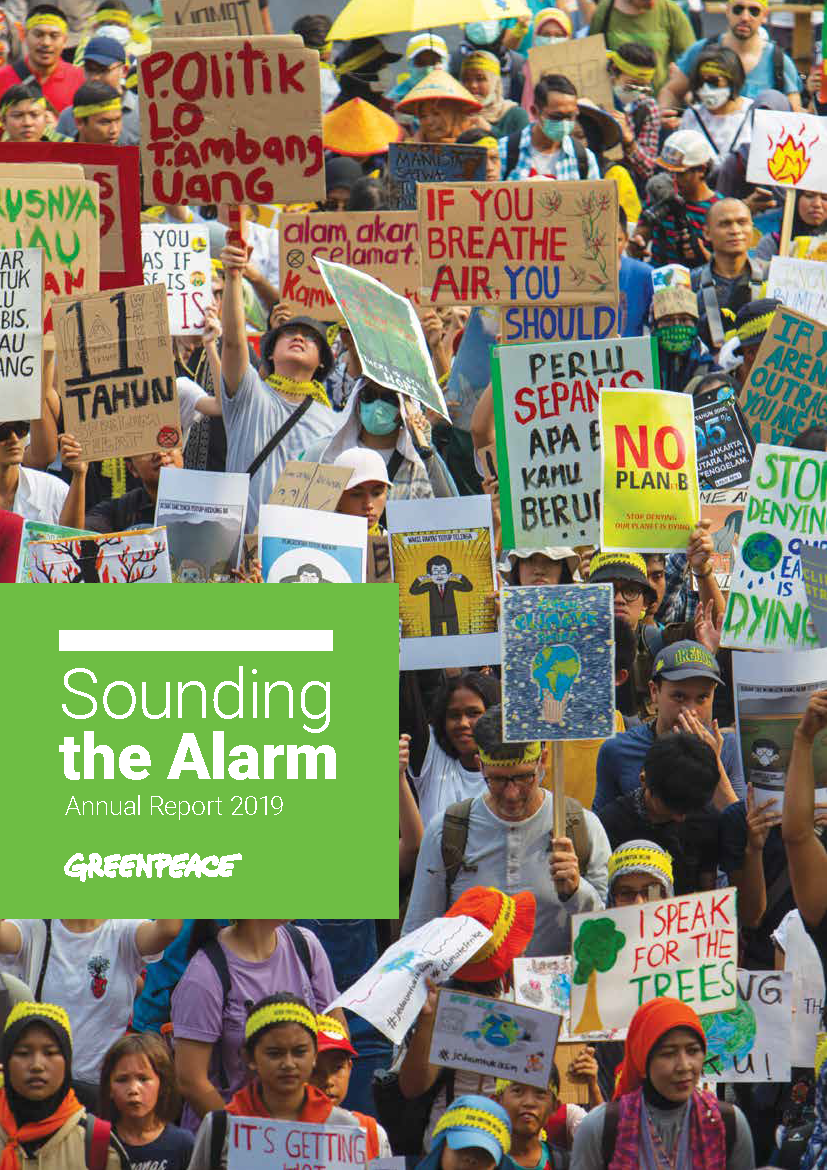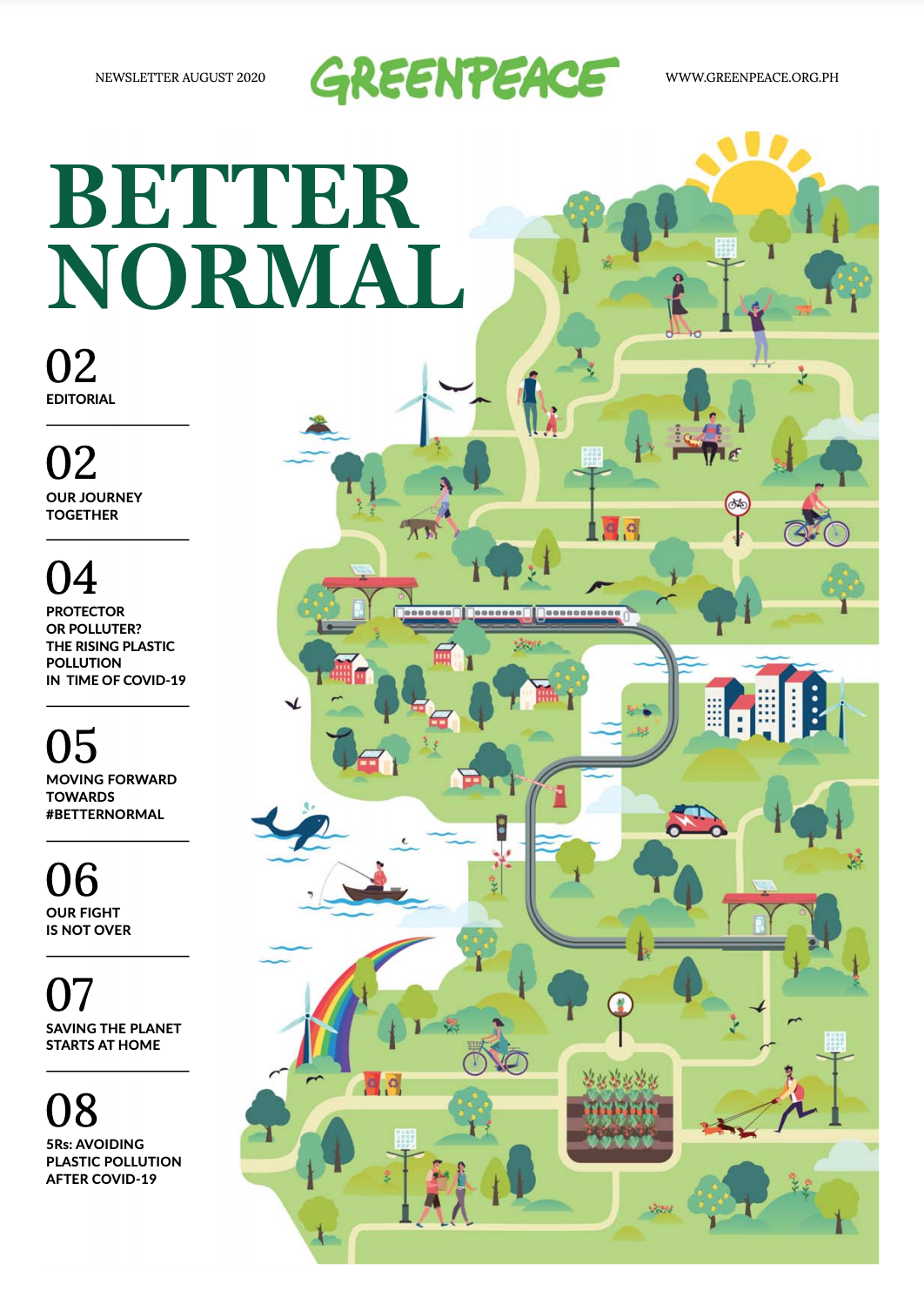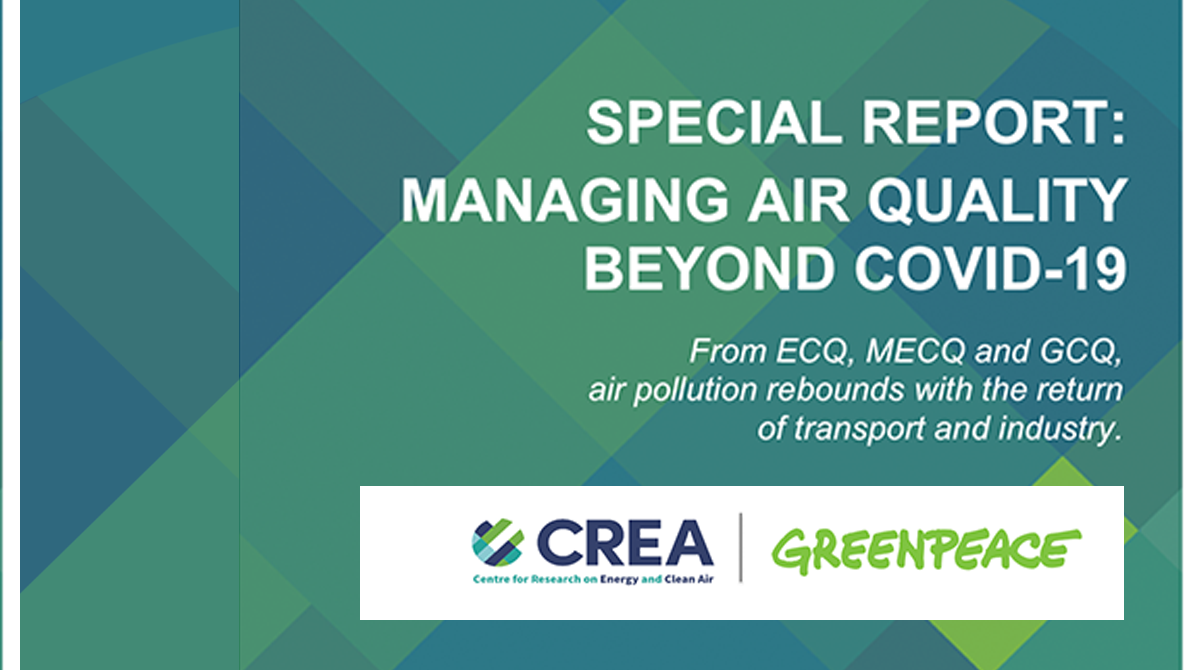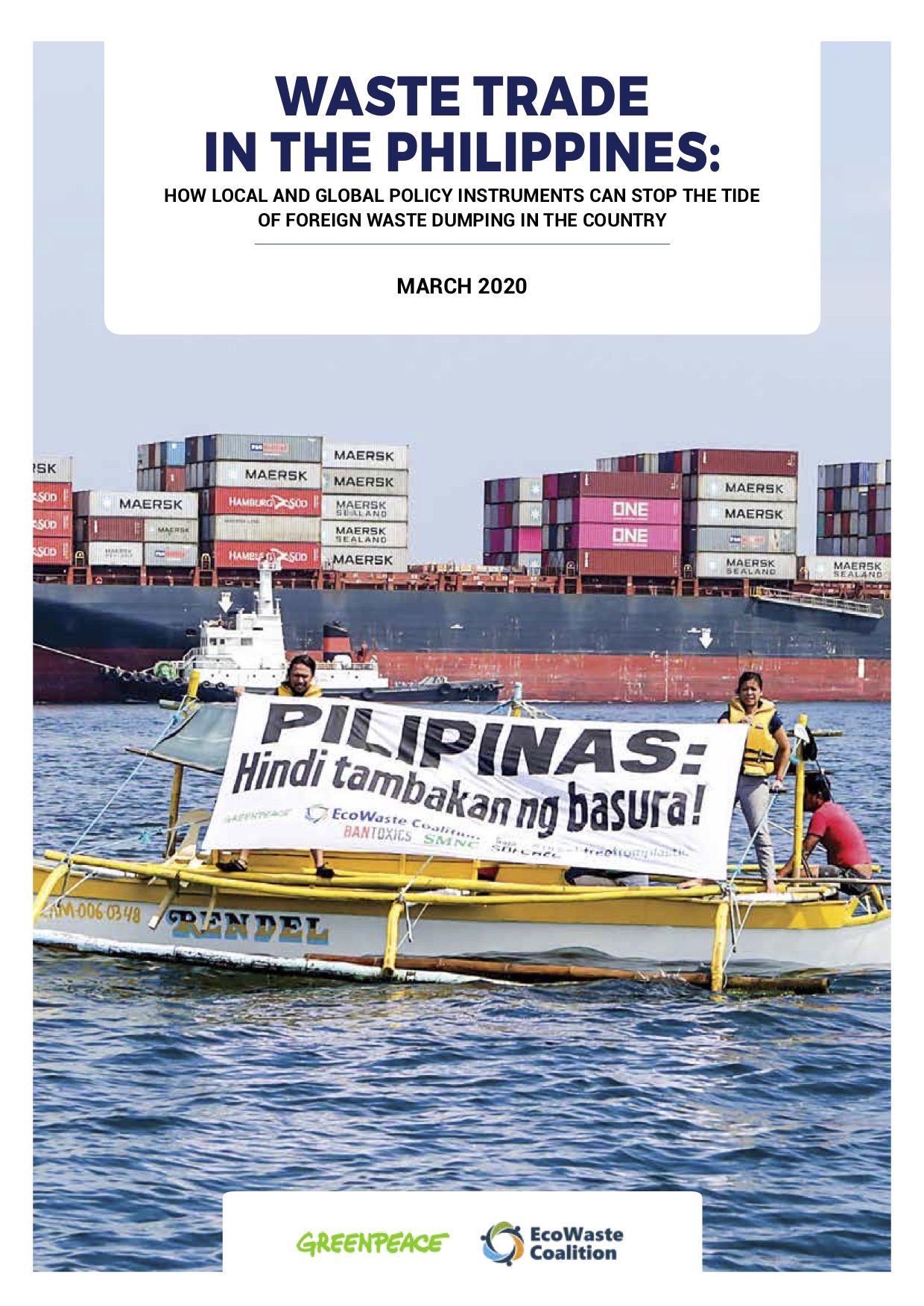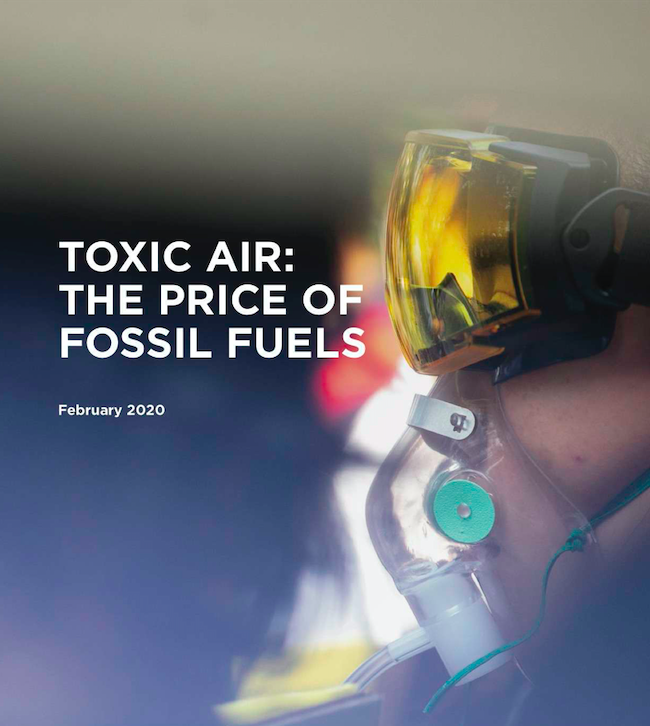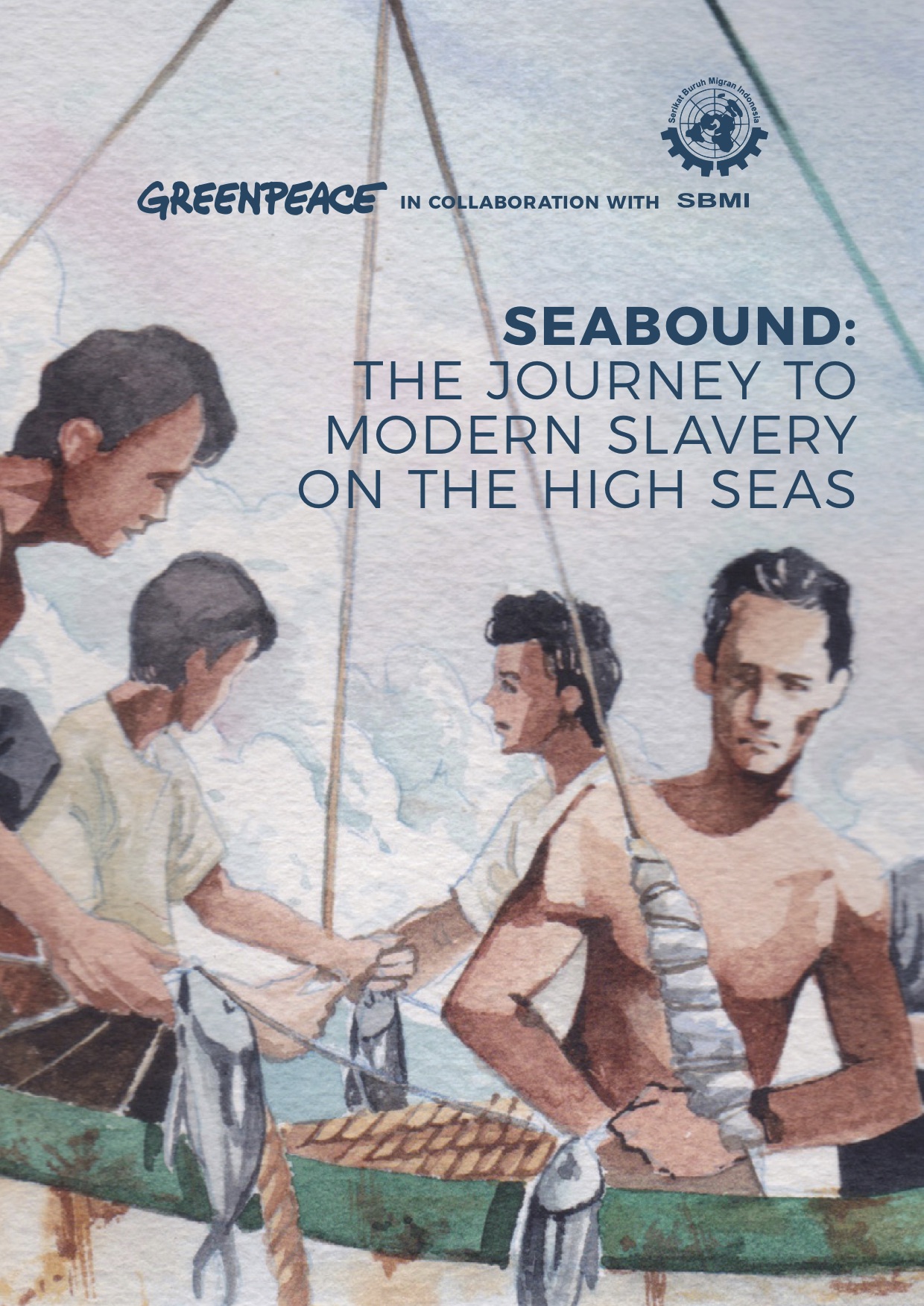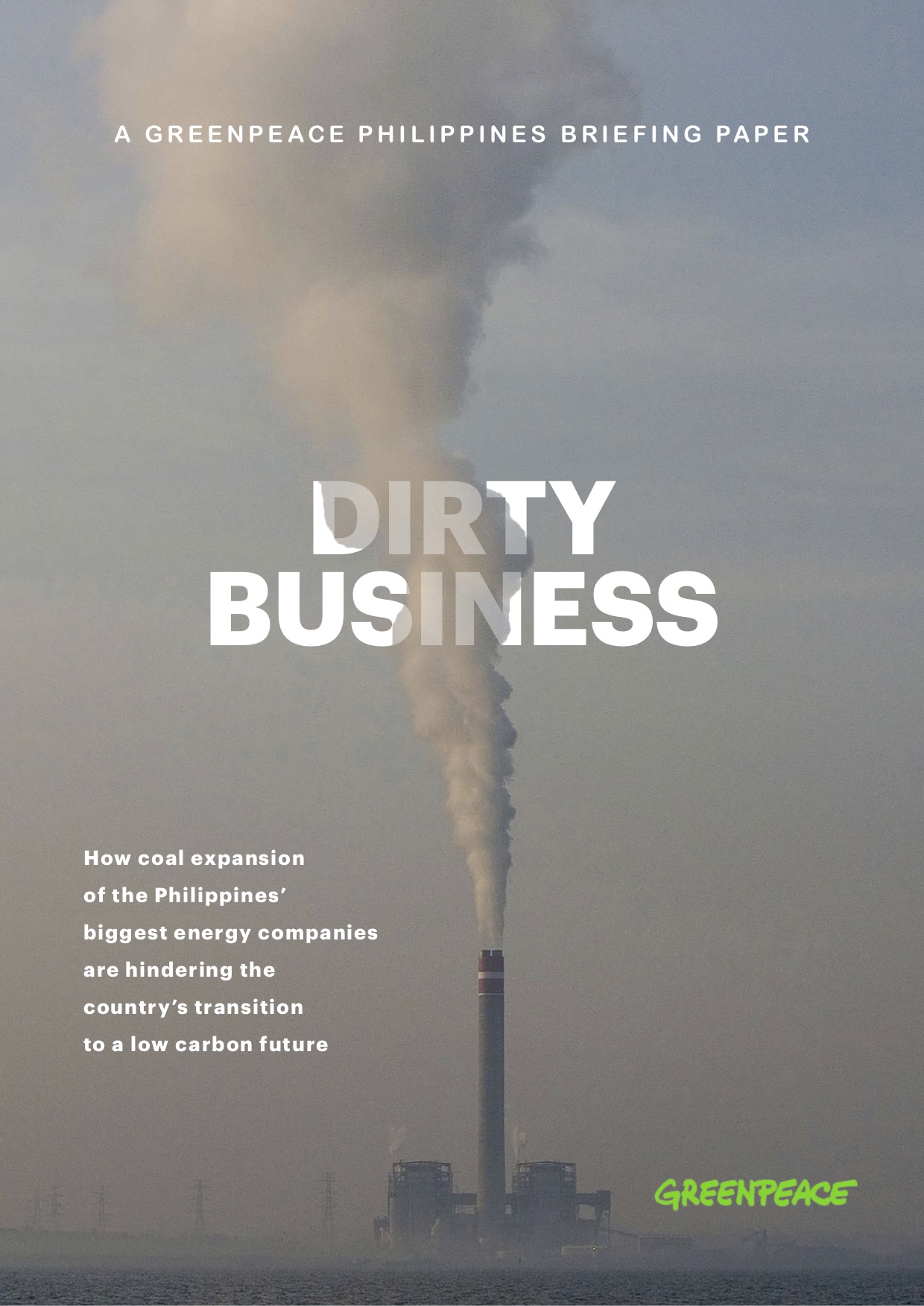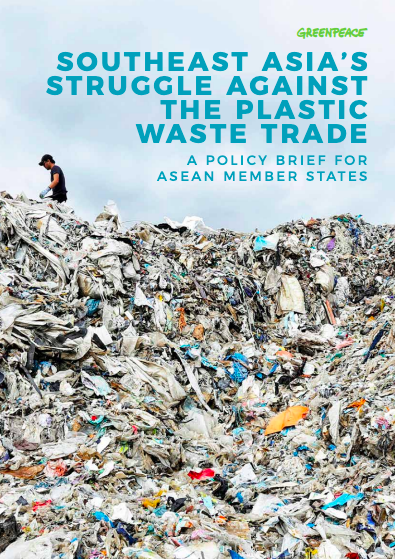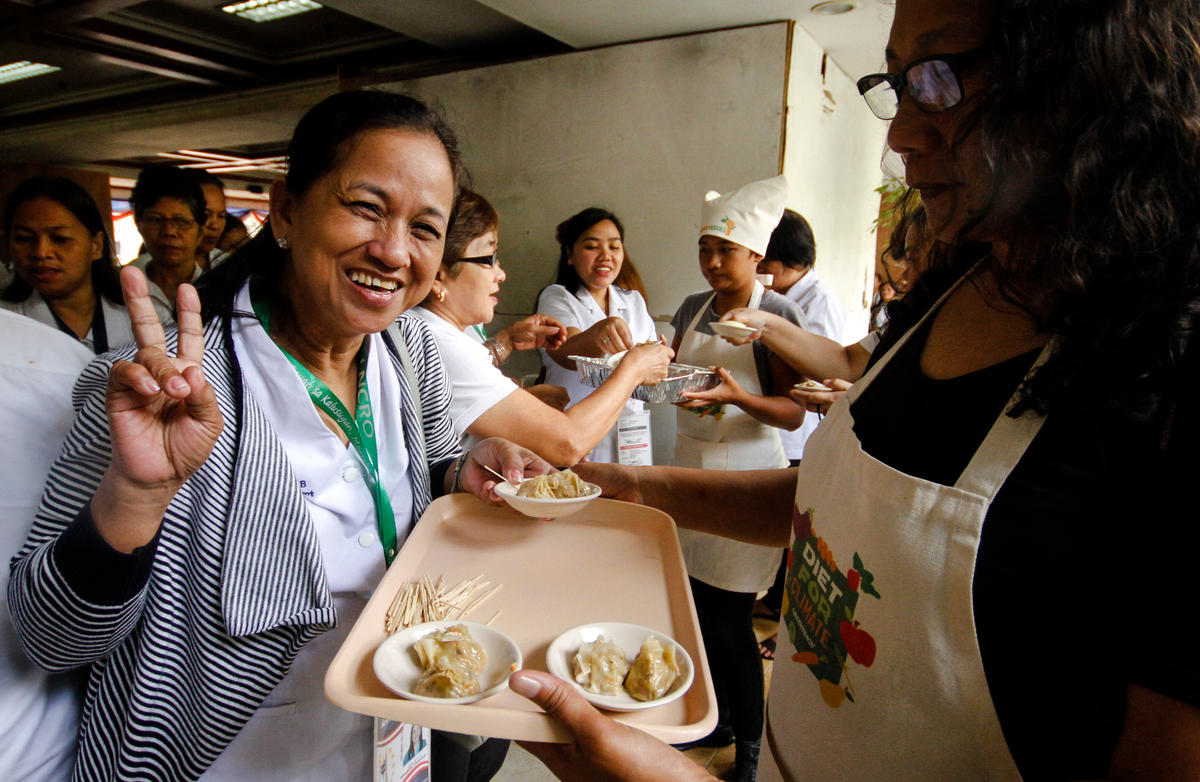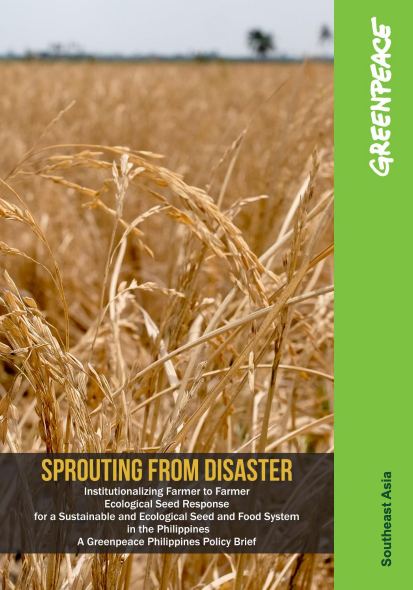All articles
-
Annual Report 2019: Sounding the Alarm
In 2019 we witnessed the power of people to make change in the face of the climate emergency that continues to threaten Southeast Asia’s communities and biodiversity.
-
DONOR NEWSLETTER 2020
This year, Greenpeace Southeast Asia celebrates its 20th year of making change and creating impact for the people and planet.
-
SPECIAL REPORT: Managing air quality beyond COVID-19
Air pollution doesn’t have to be an inescapable reality. The ECQ gave Filipino citizens a glimpse of what cities can be like with vastly improved air quality. It also showed us that air pollution can be solved without sacrificing people’s access to mobility.
-
Waste trade and the Philippines: How local and global policy instruments can stop the tide of foreign waste dumping in the country
A policy paper that looks at current waste and importation laws to identify gaps and loopholes that allow waste trade to happen.
-
Toxic Air: The Price of Fossil Fuels
A groundbreaking report from Greenpeace Southeast Asia and the Centre for Research on Energy and Clean Air (CREA) about the global cost of air pollution from fossil fuels.
-
Seabound: The Journey to Modern Slavery on the High Seas
ASEAN member States need to take concrete policy actions to address the labour and environmental issues and ensure that modern slavery at sea becomes a thing of the past.
-
Dirty Business: How coal expansion of the Philippines’ biggest energy companies are hindering the country’s transition to a low carbon future
Coal expansion by the Philippines’ biggest energy companies will hinder the country’s transition to a low carbon future, and can lock the Philippines into at least two more decades of
-
Policy Brief: Southeast Asia’s struggle against the plastic waste trade
Executive Summary As leaders from the 10 countries that make up the Association of Southeast Asian Nations (ASEAN) prepare to meet in Bangkok for the 34th ASEAN Summit this June,…
-
SWS Survey on Eating Meat
Greenpeace Philippines commissioned a survey to take a better look at Filipinos’ meat consumption.
-
Sprouting from Disaster
Climate change is making natural disasters more intense and frequent, which in turn cause periodic food emergencies and damage billions' worth of agriculture. In response, the government must review its policies and craft new ones so that farmers can help their fellow farmers who are affected by storms and drought to access diversified seeds. This…

